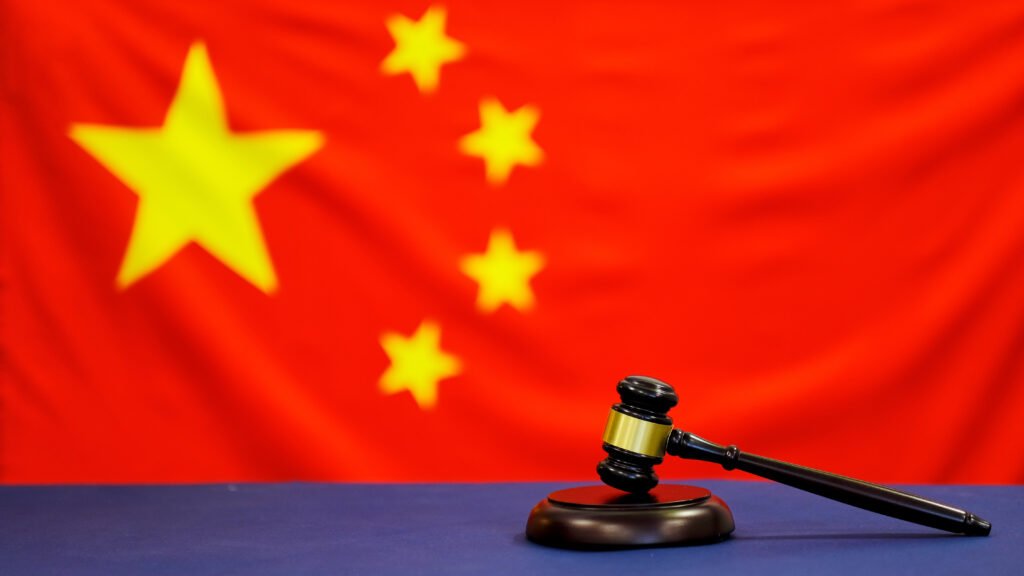China’s status as the “world’s factory” is uncontested. With countless business relationships between foreign buyers and Chinese suppliers, there’s critical to understand China’s legal landscape, particularly its contract law. Central to this understanding is Article 787 of the Chinese Civil Code.
Table of Contents
ToggleArticle 787: A Closer Look
At its essence, Article 787 states:
“Where the ordering party may terminate the contract at any time before the contractor completes the work, and the contractor suffers losses, it shall compensate for such losses.”
This article emphasizes a sense of fairness and protection for both the contractor (usually the Chinese supplier) and the ordering party (the buyer).
What Does This Mean for the Buyer?
Flexibility in Decision Making: Recognizing that market demands, strategies, or financial conditions can change, this article provides the buyer with the flexibility to adjust or terminate contracts without stringent repercussions as long as they address any resultant losses.
Cost Predictability: By ensuring that compensation only applies to actual losses, buyers can make better-informed decisions, understanding the potential financial implications of changing an order.
Reputation Management: Respecting and adhering to local laws establishes a buyer’s credibility and ensures smoother negotiations in the future. Honoring Article 787 demonstrates a buyer’s commitment to fair dealings in a global market where reputation is paramount.
Advantages for the Supplier
Financial Protection: Suppliers can invest in resources and production without fearing arbitrary cancellations. The assurance that losses will be compensated offers stability.
Enhanced Business Relationships: Trust is fostered when suppliers know that buyers respect local laws and are committed to compensating for any unexpected changes.
The Win-Win Situation
While Article 787 evidently protects suppliers from abrupt contract alterations, it also champions the rights and flexibility of buyers. Here’s why it’s a boon for both parties:
Predictable Business Environment: Buyers can engage with suppliers knowing that should they need to amend or terminate an agreement, there’s a clear legal pathway to do so, ensuring that all parties are treated fairly.
Enhanced Trust: Mutual respect for the terms laid out in Article 787 can boost trust. Suppliers are more willing to negotiate, offer better terms, or even prioritize buyers who have a track record of fair dealings.
Consistent Supply Chain Management: For buyers, understanding and adhering to this provision can lead to a more consistent, reliable, and smooth supply chain, crucial for business continuity and success.
Conclusion
Chinese Civil Code, Article 787, isn’t merely a protective clause for suppliers; it’s a foundation for a balanced business relationship. By championing suppliers’ and buyers’ rights and responsibilities, it paves the way for sustainable, long-term, and mutually beneficial partnerships. For foreign buyers, embracing the essence of this provision is a step towards successful and harmonious dealings in the world’s largest manufacturing hub.
FAQs: Chinese Civil Code, Article 787
1. What is the primary purpose of Article 787?
Answer: The primary purpose of Article 787 is to ensure that if a buyer (ordering party) terminates a contract before the supplier (contractor) completes the work, and this results in losses for the supplier, the buyer must compensate for these losses. It aims to strike a balance between protecting suppliers from arbitrary cancellations and providing flexibility to buyers.
2. How is “loss” defined under Article 787?
Answer: While the article emphasizes compensation for losses, it doesn’t provide an exhaustive definition of “loss.” In practice, losses can include costs for procured materials, labor, time spent, and potential opportunity costs. The specifics would often be determined based on the contract details and actual circumstances.
3. Does Article 787 prevent the buyer from terminating a contract?
Answer: No, Article 787 does not prevent a buyer from terminating a contract. Instead, it provides a framework for a contract to terminate, ensuring that the supplier is compensated for any resultant losses.
4. Is this provision unique to China’s legal system?
Answer: While many legal systems worldwide have clauses to protect contractors from abrupt cancellations, the specifics of Article 787 are tailored to the Chinese context. It’s essential for foreign businesses to understand these nuances when dealing with Chinese suppliers.
5. How can a buyer estimate potential compensation before altering an order?
Answer: Buyers should maintain open communication with suppliers. Before making significant changes, discussing potential implications and costs will provide a clearer picture of potential compensations. Moreover, contracts can specify details about compensation calculations for greater clarity.
6. Does Article 787 apply to all types of contracts in China?
Answer: Article 787 specifically pertains to contracts where a party orders work or services from a contractor. It might not be directly applicable to all kinds of contracts, but its principles can guide fair practices in various business dealings.
7. How does Article 787 benefit the overall business environment in China?
Answer: By providing a clear framework for contract terminations and compensations, Article 787 promotes fairness, trust, and stability in the business environment. This attracts more foreign buyers and enhances China’s reputation as a reliable place for business.
8. If a dispute arises due to Article 787, how is it resolved?
Answer: Disputes can be resolved through negotiations between the parties involved, mediation, arbitration (if an arbitration clause exists in the contract), or through the Chinese judicial system.
Contact us if you need legal help in China, like drafting contracts that follow Chinese law, background investigation of Chinese companies, protecting patents, trademarks, copyright, and verification of contracts to the law in China, help with trade disputes and IP disputes in China, etc.
If you require our assistance or have further questions about our services, please do not hesitate to contact our Customer Relationship Manager, Jan Erik Christensen, at janerik@ncbhub.com. We look forward to hearing from you and helping your business succeed in China.








